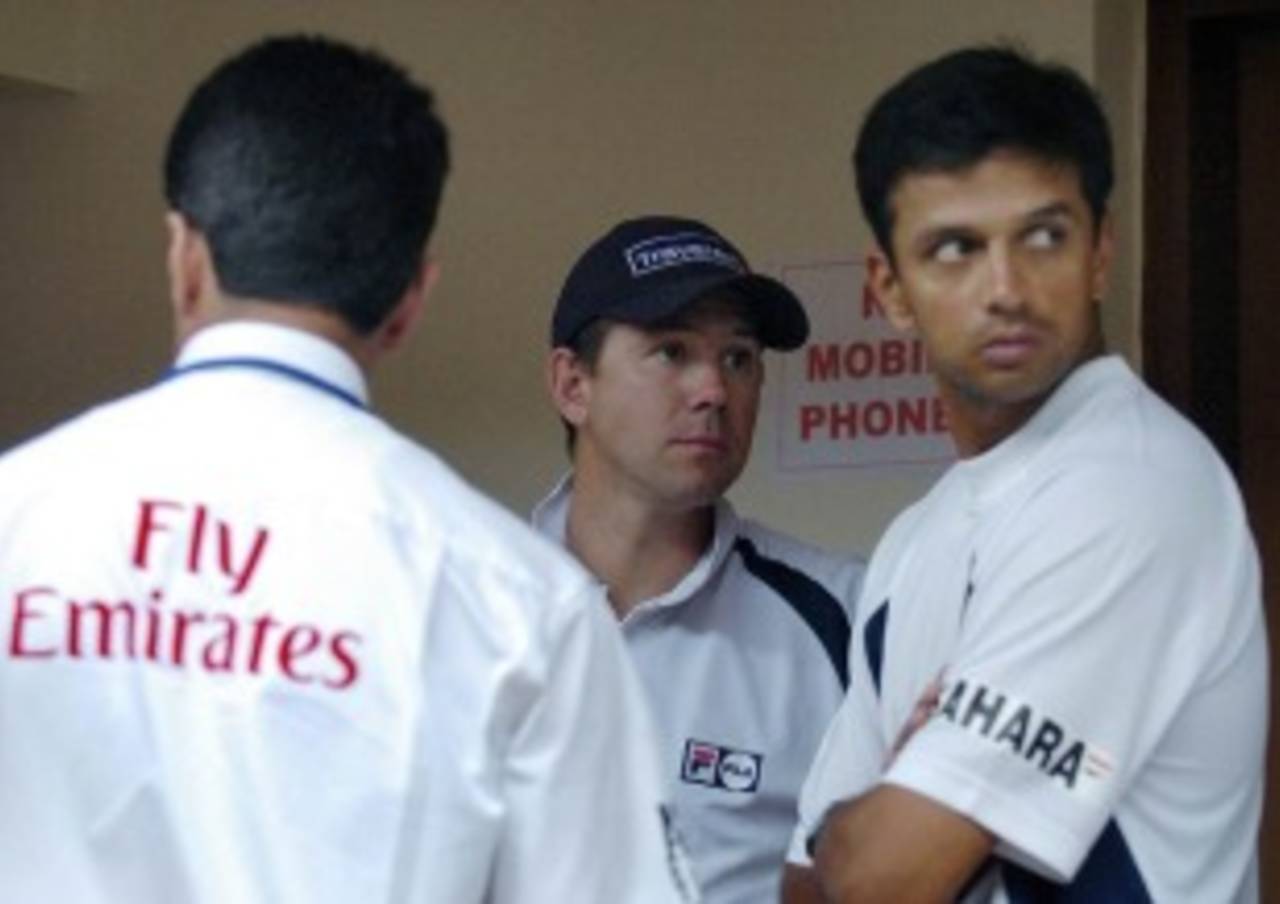A two-Test series between India and Australia should be disallowed. India are
the No. 1 team at the moment, Australia's No. 4 slot has to be an
aberration. Between them they have produced some of the most stirring contests
of the last decade. And now, two years after they last looked each other in the
eye, they meet for a mere quickie. Would Nadal and Federer play over two sets?
Tiger Woods play seven holes? Would Ali and Foreman have fought over six rounds?
Of course it could have been worse, couldn't it? They might not have played Tests
at all, they might have dragged themselves around the country playing seven one-
day games. And so there is a feeling that we should be happy we are at least
getting this much. Would you like to go to a fine-dining restaurant and come
away having tasted the starters? India versus Australia is a premium contest,
one of the torch-bearers of Test cricket; the itineraries should be decided years in advance,
four Tests should be a minimum. They cannot be a late add-on.
Sadly, it means we will not be able to draw too many conclusions from this
affair. Longer series are fun because they test different factors: can teams
fight back, for example, or can they overcome injuries or poor form? When teams
look each other in the eye, you want to see who blinks first.
Two maestros, rich in experience but growing in years, will also lock horns.
Rahul Dravid and Ricky Ponting, the most prolific, and among the greatest,
number threes in the history of the game may not face off against each other
again, because the next series is 14 months away. Now that they are in their mid-thirties you
would like to believe their best days are behind them, but these are men of
great skill and outstanding character and their battle against time over a more sustained contest would have been riveting.
Indeed those are the two names I will look at most closely in this novella of a
series. They are giants. At No. 3 Dravid has made a colossal 9065 at 54.60. However, starting with the last
time they met in October 2008, Dravid averages 46.07, compared to a career average of 52.94. Ponting's drop has been a little more pronounced, he scores at
41.00, compared to 54.66 over his career. Over the last 12 months, though, Dravid
averages 60.63 to Ponting's 40.05. Does that suggest a renaissance for Dravid
and a continued drop for Ponting? You could delve into the opposition they have
encountered but that wouldn't count for much. A tough series would have been the
best indicator.
The last decade has been extraordinary for them; both would walk into
their country's all-time XI. But they are entering a decade with
significantly greater challenges, if not so much from the opposition bowling as from
their own instincts and the standards they set for themselves.
From others, those mythical entities that can never be matched, there
will be expectations. For
both Dravid and Ponting, Tendulkar will be a benchmark, and a bugbear, for he shrugged off a similar
run in 2006-07 to come back with numbers that are close to his best. Even
Tendulkar is not the batsman he was - no one can be - but the numbers he has
generated would lead to expectations of other giants.
Ponting, like Australia, is going through a bit of a crisis, and the two may not
be unrelated. Maybe his days of adventure are over but he isn't yet a pensioner.
His is still the wicket the opposition most wants, because his successor, Michael
Clarke, isn't yet a Ponting, may never be. Like with Dravid, there is no
immediate challenger in sight for Ponting, nobody asking uncomfortable questions
of the selectors. But that can change: the challenge for champions is often
from within; from their own desire, and maybe inability, to play to the
standards they did.
This series will merely whet the appetite; two good batting sides up against
bowling sides that have questions marks against them. I do not think we will
know which the better side is at the end, and that is why I will watch Ponting
and Dravid very closely.
Harsha Bhogle is a commentator with the BCCI and a television presenter and writer. His Twitter feed is here
